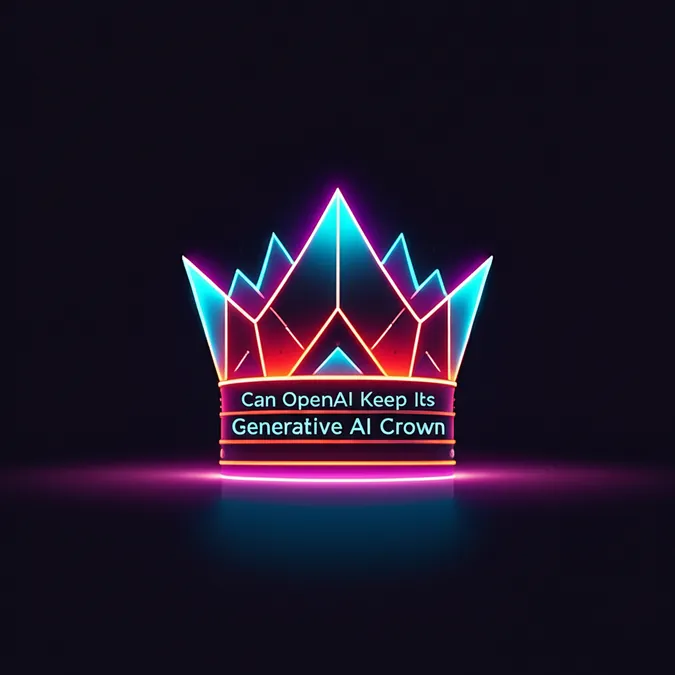Developer Offer
Try ImaginePro API with 50 Free Credits
Build and ship AI-powered visuals with Midjourney, Flux, and more — free credits refresh every month.
AI Becomes A Lifeline During Conflict In Tehran
In the heart of Tehran, as the sounds of war with Israel grew closer, 31-year-old shop manager Roxana found herself utterly alone. Her family was far from the capital, her boyfriend was unreachable on a military base, and even her psychotherapist had fled the city. Overcome with panic, she turned to an unconventional source for help: ChatGPT.
“I asked it, can you give me a specific time when this is going to end?” Roxana shared, choosing to remain anonymous for her safety. The conflict, which began June 13 with Israeli attacks on Iranian nuclear sites and saw retaliatory missile strikes from Iran, lasted for 12 intense days. It was during this period of uncertainty that Roxana found herself in a near-constant conversation with the AI.
An Unlikely Digital Confidant
During frequent internet blackouts that crippled most search engines, Roxana's building somehow maintained a stable enough connection to access ChatGPT. According to Narges Keshavarznia, an internet researcher with Filterwatch, Iranians have been using specific proxies to bypass government restrictions on the AI.
The chatbot became a multifaceted tool for Roxana. It provided her with new information, suggesting the conflict might last another 10 or 12 days based on the Islamic Republic's international lobbying efforts. More than that, it became her personal advisor. Having conversed with it so often, the AI knew the layout of her apartment and offered security advice, identifying the safest room to shelter in.
When panic attacks struck, it transformed into a therapist. “I used to speak a lot to it and it knows me,” she explained. “By just telling me that 'this is only a nervous attack and it will pass,' it helped me a lot. I shared my anxieties with it, my financial concerns and worries.”
 A man stands on the roof of a building while watching the horizon in Tehran on June 16. Iran's state broadcaster was briefly knocked off the air by an Israeli strike and explosions rang out across Tehran that day. (Atta Kenare / AFP via Getty Images)
A man stands on the roof of a building while watching the horizon in Tehran on June 16. Iran's state broadcaster was briefly knocked off the air by an Israeli strike and explosions rang out across Tehran that day. (Atta Kenare / AFP via Getty Images)
The Search for Truth Amidst Propaganda
Getting reliable information was a significant challenge. While Roxana found a unique source in AI, she noted that it couldn't answer her most desperate questions about the safety of her loved ones. The struggle for information was compounded by state-controlled media and internet shutdowns. Authorities reportedly blocked internet access to maintain security.
“On their state media, they are trying to show you know, everything is OK and it’s so beautiful... that makes me even angrier,” Roxana said. “On Iranian TV it was like 'the war was over’ and we’d won since the second day.” This official narrative stood in stark contrast to the distant explosions she could hear. It's a reminder that while AI offered her comfort, these same technologies are often used as sources of misinformation during conflicts.
Life in Tehran Beyond the Headlines
Before the war, Roxana's life was one many in the West might not associate with Iran. She describes a vibrant social life filled with concerts, late nights with creative friends, and a general disregard for the state's stricter rules. She would only cover her hair when absolutely necessary, like at government offices. This picture of a modern, cosmopolitan Tehran contrasts sharply with the city's depiction in international news.
 People walk through the old main bazaar of Tehran, Iran, on a Saturday night, Oct. 19, 2024. (Vahid Salemi / AP)
People walk through the old main bazaar of Tehran, Iran, on a Saturday night, Oct. 19, 2024. (Vahid Salemi / AP)
The Weight of a Forgotten Generation
Beneath this vibrant surface lies a deep economic struggle. Years of U.S. sanctions and internal policies have created a financial crisis. A World Bank study found that 40% of Iranians were at risk of poverty, with the country's large youth population hit hardest.
“I feel like we are the forgotten people,” Roxana lamented, explaining that the working poor like her fall through the cracks between the wealthy and the destitute. “We are trying hard to stand on our feet, not to need anyone. But life is getting harder and harder.” Her aspirations of learning German and emigrating have been abandoned under the weight of daily survival.
Finding Escape in Virtual Worlds
Unable to sleep, Roxana now spends her nights playing video games. After her account for The Sims was hacked and she lost the virtual life she had built, she turned to Life is Strange, a game where the protagonist can rewind time—a poignant choice for someone who has lost so much.
“I couldn’t save the family that I made there,” she said of her lost Sims game, a sentiment that echoes her real-world anxieties.
After a ceasefire was declared, Roxana and her friends gathered in her apartment, enveloped in a strange silence. The relief was mixed with a profound sadness for what their lives had become. In a social media post, she captured this feeling, writing that they hadn't asked for much: “A little bit of bread, a little bit of joy, a little bit of dreams, a little bit of rights, a little bit of…”.
Compare Plans & Pricing
Find the plan that matches your workload and unlock full access to ImaginePro.
| Plan | Price | Highlights |
|---|---|---|
| Standard | $8 / month |
|
| Premium | $20 / month |
|
Need custom terms? Talk to us to tailor credits, rate limits, or deployment options.
View All Pricing Details

